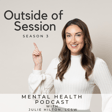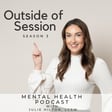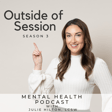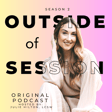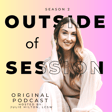
Healing the Mother-Daughter Wound
Relationships between mothers and their daughters aren't always picture perfect. In fact, they can be one of the most complicated relationships we ever have in our lives!
This week, Monique Evans brings her expertise in working with Mother-Daughter wounds in therapy, helping us understand the root of the issue and offering hope for what healing can look like.
About today's guest:
Monique Evans, LCSW (she/her/hers) is a licensed clinical social worker (licensed in NY and CT) who works as a full-time clinician as an employee assistance program counselor for a major hospital and sole-owner of her private practice (IG: @therapywithmo). Ms. Evans spent the first five years of her career conducting individual, family and couples’ therapy treatment. Ms. Evans holds unique knowledge of the child welfare and family court systems based on her prior experience working in family prevention programs and for a non-profit clinic program. In that capacity, Ms. Evans provided wraparound services which included family psychotherapy, care coordination, and other community-based services. Additionally, Ms. Evans is a graduate of Ackerman Institute for the Family’s postgraduate externship program where she received extensive training in couples and family therapy.
Ms. Evans obtained her B.A. in Sociology from Hunter College of the City University of New York. Afterwards, she continued her graduate studies at New York University- Silver School of Social Work to obtain her Master of Social Work (MSW) degree in 2016. In her training and development as a social worker, Ms. Evans has applied evidence-based treatment modalities to treat clients' presenting symptoms ranging from anxiety, mood disorders, school issues, childhood trauma and adult mental illness. She is a strong advocate for the needs of those in her clinical care. Ms. Evans is committed to serving her clients with grace, care and compassion through some of the most difficult challenges they may encounter. Ms. Evans’ identity as an African-American woman is important to her on issues of race, social justice, and consciousness inside and outside of the clinical context. She is passionate about these issues and how to continue these important conversations.
Connect with Monique!
Instagram : @therapywithmo
Website : moniqueevanstherapynyc.com
Resources from today's episode:
